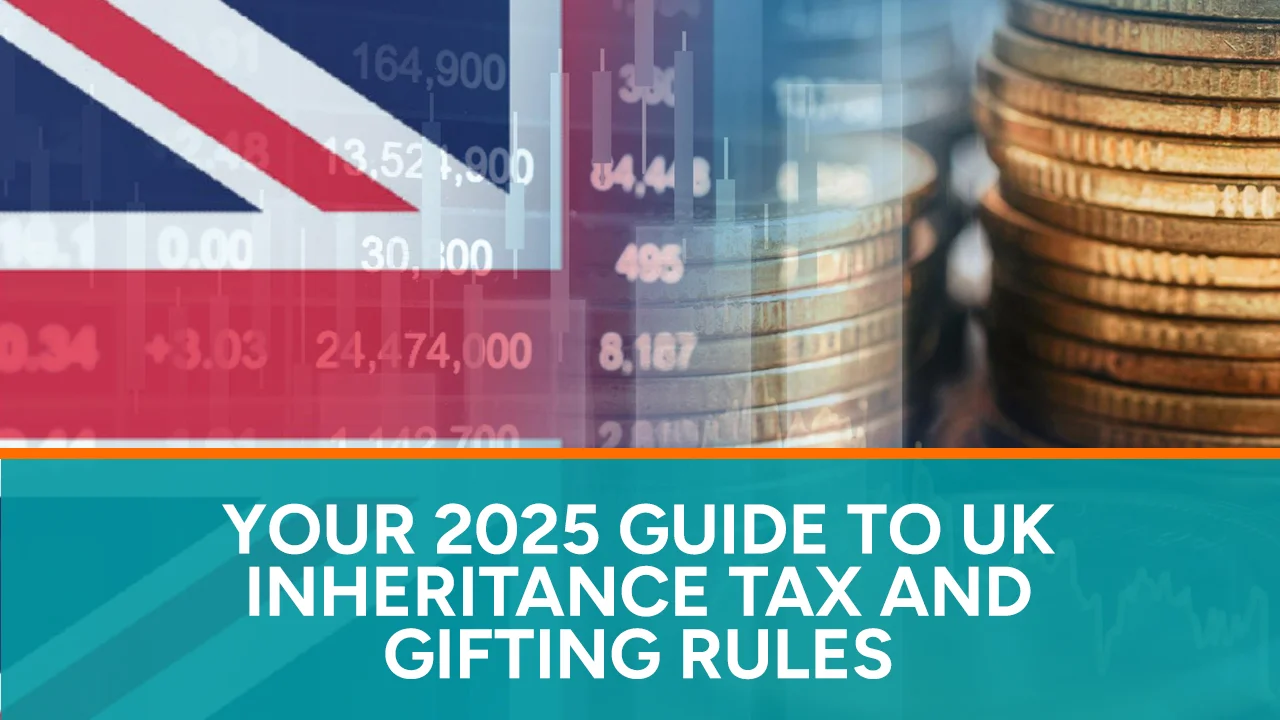Inheritance tax (IHT) is a topic most people think about only after a loved one dies. However, knowing how inheritance tax works in the UK can greatly help your financial planning. As discussions about new policies increase in 2025, it’s important for families and individuals to prepare.
Inheritance tax is a tax on the estate (money, possessions, property) of someone who has died. This tax only affects estates above certain limits, so understanding it can help avoid unexpected costs for your family. Planning ahead can give you peace of mind and may save you money on taxes.
The UK inheritance tax system may seem complicated at first, but once you understand the basics, you’ll feel more confident in your financial choices. Whether you’re looking at your own estate or helping an elderly parent, knowing the key rules can help protect your wealth and legacy.
How Inheritance Tax Works in the UK
Let’s simplify this step-by-step. In 2025, the UK inheritance tax threshold is £325,000, known as the nil rate band. If your estate is worth less than this, you won’t pay any tax. If it’s more, you will pay a 40% tax on the amount over £325,000.
Here’s a strategy: Married couples and civil partners can share their unused tax allowance. This means their combined threshold is £650,000. Additionally, there’s a residence nil rate band that adds £175,000 per person if you leave your home to children or grandchildren.
So, if you’re married and leaving your house to your kids, you could pass on up to £1 million tax-free (£650,000 + £350,000 from the residence allowance). This can help protect your property from taxes.
However, the rules about the residence nil rate band can be complex. For example, if your estate is worth over £2 million, this allowance decreases. It’s essential to get professional advice to understand your situation.
Inheritance Tax Changes 2025: What Might Be Coming
With the Autumn Budget inheritance tax announcement coming soon, several big policy changes are being discussed. These changes could greatly affect how wealth is passed down in the UK.
- One major change is a possible limit on lifetime gifts. Right now, there’s no total limit on gifts made during a person’s life beyond the annual allowances. The government is considering setting a cap between £100,000 and £200,000. If this cap happens, it could change how people plan to transfer their assets early.
- Currently, the taper relief reduces taxes on gifts made 3–7 years before death. This encourages people to give gifts earlier. However, proposed changes might remove taper relief completely. If that happens, all gifts made within 7 years of death would be taxed at the full 40% rate.
At Clarkwell & Co., we are closely following these changes. As your trusted experts in Inheritance Tax Advice in London, we suggest reviewing your estate plans regularly to stay prepared.
Gifting Rules and Allowances in 2025
The inheritance tax gifting rules help you lower your taxable estate while helping your loved ones. Using these allowances each year can lead to significant savings over time.
For the 2025 tax year, you can give up to £3,000 tax-free in the UK. You can split this amount among several people or give it all to one person. Additionally, you can make small gifts of up to £250 per person, as long as they haven’t received any part of your £3,000 allowance.
Gifts for special occasions are also tax-free. You can give:
- £5,000 to a child for their wedding.
- £2,500 to a grandchild or great-grandchild.
- £1,000 to anyone else.
You can also make regular gifts from extra income. These gifts should be consistent and not affect your living standard. Examples include monthly contributions to a grandchild’s Junior ISA, rent payments, or ongoing support for elderly relatives. Be sure to keep proper records of these gifts.
Taper Relief: How It Works (For Now)
Early planning has a major benefit: taper relief. This can lower the taxes on gifts made several years before someone passes away.
Here’s how taper relief works now:
- Gifts made 0–3 years before death: 40% tax
- 3–4 years: 32% tax
- 4–5 years: 24% tax
- 5–6 years: 16% tax
- 6–7 years: 8% tax
- 7+ years: 0% tax (no tax at all)
This system encourages families to give larger gifts early to take advantage of lower tax rates. However, taper relief is at risk of being removed. If that happens, early gifting as a way to save on taxes could be affected. Therefore, it’s important to review your plans in 2025.
Inheritance Tax Exemptions UK: Who and What Qualifies?
In addition to standard allowances and gifts, there are several inheritance tax exemptions in the UK to consider:
- Spouse/Civil Partner Transfers: Anything you leave to your spouse or civil partner is exempt from inheritance tax.
- Charitable Giving: Donations to UK-registered charities or Community Amateur Sports Clubs are fully exempt from tax.
- Business Property Relief (BPR): This can provide up to 100% relief on shares in unlisted trading companies or business interests.
- Agricultural Property Relief (APR): This offers up to 100% relief on qualifying farmland and buildings.
These exemptions are especially useful for entrepreneurs, landowners, and wealthy individuals. Our Property Tax Accountants in London help clients organise their estates to make the most of these exemptions.
If your estate includes business shares, farmland, or many rental properties, talk to us before making any decisions. A small mistake can lead to unexpected tax liabilities.
The Role of HMRC and What Their Guidelines Say
The HMRC inheritance tax guide explains how to calculate, report, and pay inheritance tax (IHT). It includes:
- How to value your estate
- Deadlines for submitting IHT forms
- Which assets are included in IHT
- Reporting gifts and exemptions
However, the HMRC guidance can be complicated and hard to understand, especially during stressful times. Missing a deadline or misvaluing assets can lead to penalties or an audit.
At Clarkwell & Co., we help clients stay compliant and avoid risks. If you have a tax question, audit, or filing issue, our Tax Investigation Service London team can assist you in resolving it with HMRC quickly.
Inheritance Tax Planning 2025: What Should You Do Now?
Plan for inheritance tax in 2025 now to protect your legacy. Here are some simple steps:
- Calculate your estate value: List all your assets, including savings, pensions, life insurance payouts, and properties abroad.
- Use allowances: Each year, you can gift £3,000 without tax. Make small gifts whenever you can.
- Update your will: Ensure your wishes are clear and legally valid. Consider using trusts if necessary.
- Consider insurance: A whole-of-life policy can help pay future inheritance tax, especially if you own property.
- Get professional advice: Planning on your own might cost you more later.
We assist clients with estates of all sizes. Whether you are passing down a family home or an investment portfolio, early planning gives you more choices.
Real-Life Scenarios: How Rules Apply in Practice
Scenario 1: John leaves a £600,000 estate to his daughter. He is single, and the property is his main home.
- Nil Rate Band: £325,000
- Main Residence Band: £175,000
- Taxable Estate: £100,000
- IHT Due: £40,000 (40%)
Scenario 2: Priya gives her son £50,000 in 2022 and dies in 2026.
- Gift made 3–4 years before death
- Taper relief: 32% on £50,000 = £16,000
Scenario 3: Hamza has a farm worth £800,000 and gives it to his nephew.
- Qualifies for Agricultural Property Relief
- 100% exemption = £800,000 tax-free
Scenario 4: Carol sends her disabled sister £500 each month from her extra income.
- Documented as regular spending
- Fully exempt under current rules
These examples show how different situations can change the outcomes based on planning and eligibility. With inheritance tax changes expected in 2025, getting personalised advice is crucial.
Why 2025 Is a Crucial Year for Inheritance Tax Planning
At Clarkwell & Co., we think that good planning today brings peace of mind for the future. As trusted accountants in London, we help families, professionals, and business owners prepare for all financial situations.
Here’s what we’ve learned:
- Tax laws often change during uncertain economic times.
- Many believe Inheritance Tax (IHT) only impacts the rich.
- Even average estates can be affected by IHT because of rising property prices.
- Being aware, giving gifts early, and keeping good records are important.
Don’t wait for changes in the law to take action. Contact our Inheritance Tax Advice team in London today for a personalised estate planning consultation.







